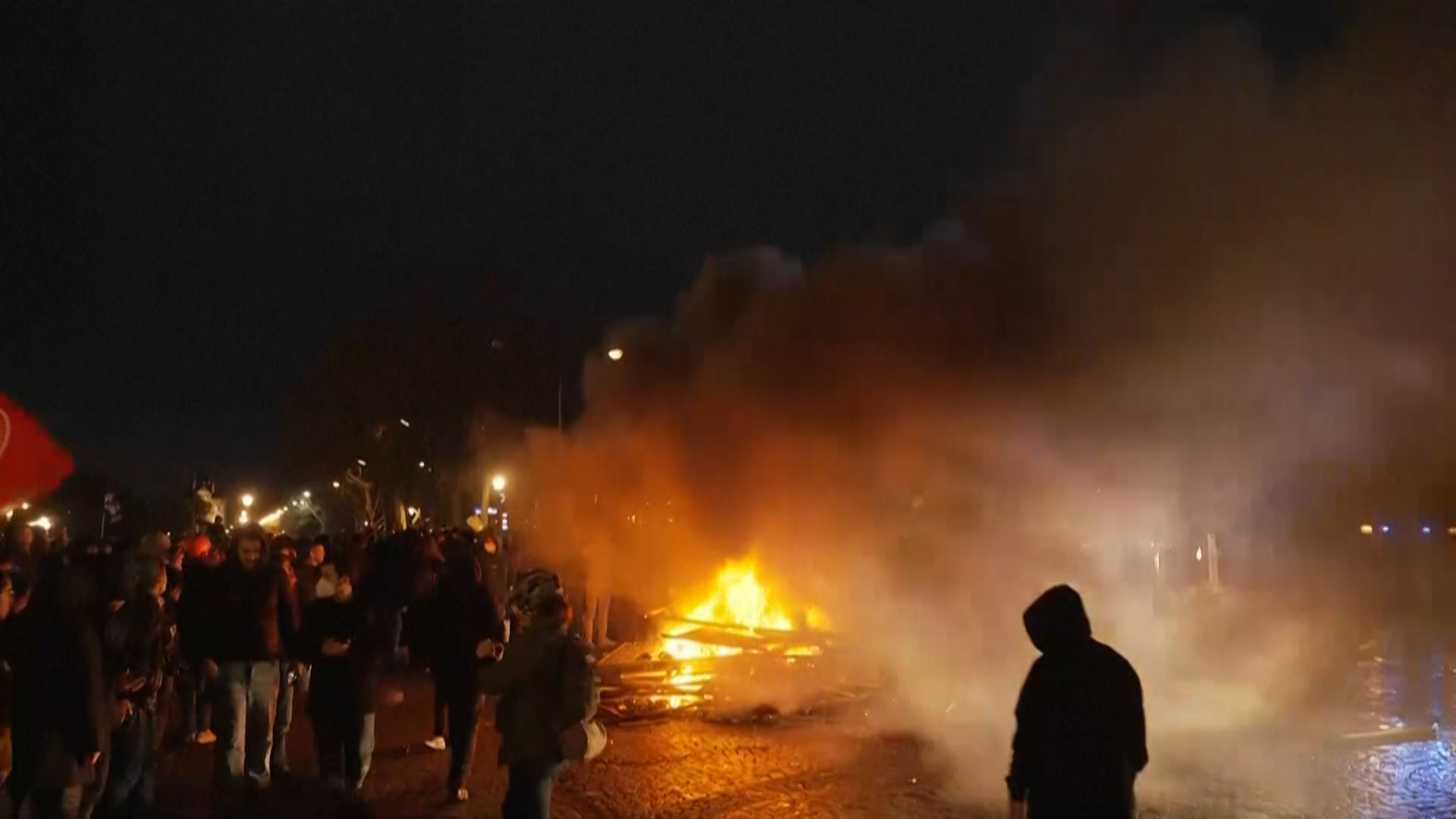Protests continued on Friday in various French cities after the law to amend the pension system was passed without a vote in the National Assembly, and while security forces arrested more than 300 demonstrators, opposition parties filed a motion of no confidence in the government.
Thousands of French people gathered in several cities to protest against the pension reform and the use of the third paragraph of Article 49 of the constitution, which allows the president to pass any bill without a vote of the National Assembly.
Those protests were sometimes accompanied by violence, with Interior Minister Gérald Darmanin announcing 310 arrests, including 258 in Paris alone.
Schools and universities were also partially closed by young protesters, including in Clermont-Ferrand and Lille.
For its part, the "Coordination of Unions" announced the continuation of mobilization against the amendment this weekend, and called for a general strike and demonstrations next Thursday.
The French government chose to raise the statutory retirement age in response to the financial deterioration of pension funds and an ageing population.
France is one of the European countries with the minimum retirement age without pension systems being fully comparable to other countries.
There is almost unanimity among the opposition that resorting to Article 49.3 of the constitution to adopt the bill without a vote in the National Assembly is a setback for French President Emmanuel Macron, who has pledged his political capital to this reform, making it the most prominent project of his second presidential term.
Various polls show that most French people oppose the amendment, even though the number of protesters on the streets and strikers has declined over time.
Anger in Paris is also highlighted by the accumulation of waste in a number of streets, which has not been collected for several days due to a workers' strike.
In this world-class tourist destination, stench continues to emanate from piles of rubbish, as authorities prepare to call in workers to remove part of it.
Opposition movements
Al Jazeera's Paris correspondent Noureddine Bouziane reported that the radical right-wing National Rally party would submit a motion of no confidence in parliament to the government.
The move is planned by the multi-party group of independent MPs, with the petitions to be voted on Monday.
Jean-Luc Mélenchon, leader of the Radical Left Rebel France party, encouraged spontaneous actions throughout the country, announcing that his party would withdraw its no-confidence motion in favour of the LIOT group. Some are counting on it to be voted on by right-wing lawmakers opposed to pension reform.
The fate of the government, which is based on a relative majority in the National Assembly, falls into the hands of about 60 deputies from the traditional right-wing group (the Republicans Party); if their votes are added to those of all other opposition deputies, they will reach an absolute majority of 577, which can bring down the executive.
Republican leader Eric Ciotti warned on Thursday that his party's lawmakers would not vote on "any of the no-confidence motions." Therefore, toppling the government seems to be a difficult goal for the opposition.

